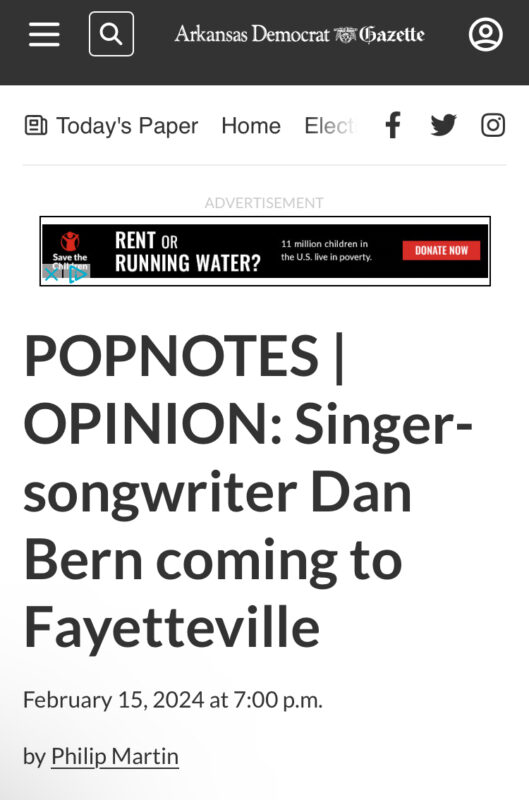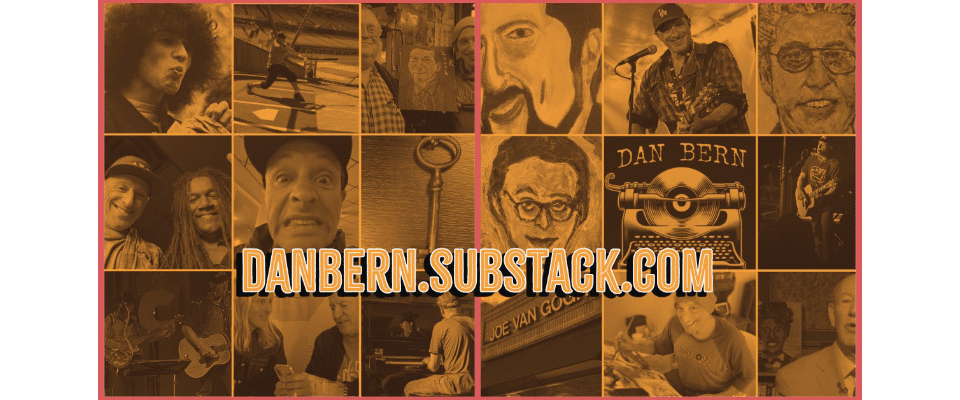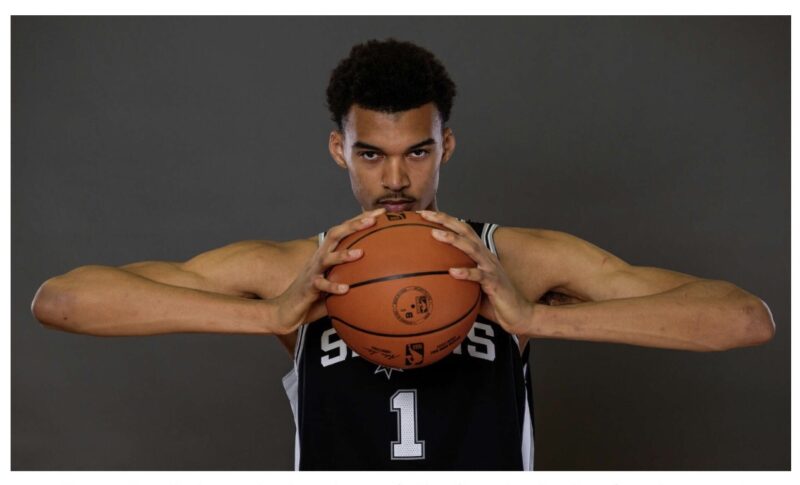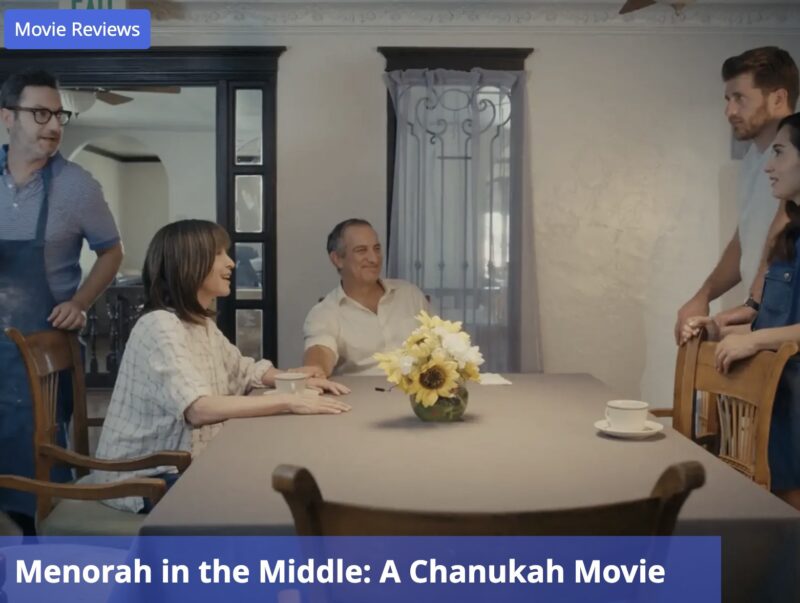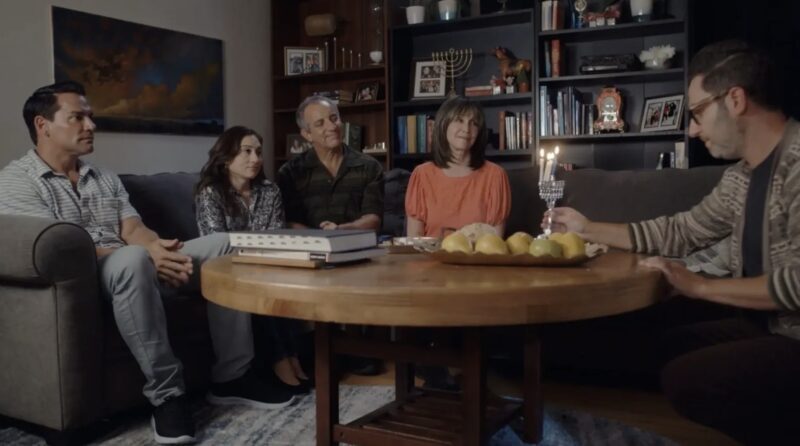“I have a dream of a new pop music that tells the truth.”
— Dan Bern, “New American Language”
I don’t know when I first heard Dan Bern.
I think I caught him once as a solo act in Chicago, or maybe Scottsdale, when we were both young and raw. I thought he’d fit in as a member of the Mekons.
I do know that Sandra Cox — now Sandra Cox Birchfield — named his debut album “Dan Bern” the best record of 1997 at the year’s halfway mark. She was so impressed by the album she declined to name four other albums to fill out a top five. (I picked Lucinda Williams’ “Car Wheels on a Gravel Road,” which wouldn’t be released until a year and a day after the story ran. I also went for the Wu-Tang Clan, Imperial Teen, Nick Cave and The Nields. The first six months of 1997 weren’t bad.)
So, thanks to Sandra, I procured a copy of Bern’s next album, 1998’s “50 Eggs,” produced by indie icon Ani DiFranco, which kicked off with a treatise on toxic masculinity called “Tiger Woods” that blindsided me with its forthrightness and economy, in the way that a Philip Larkin poem can.
It’s not really about the titular golfer (though looking back on it after a quarter of a century, you could call it “prescient”) but about the sort of man a lot of boys think they ought to become. At one point the singer/narrator leads us through a pickup artist seminar that’s both ominous and drawn from life:
If certain girls don’t look at you
It means that they like you a lot
If other girls don’t look at you
It just means they’re ignoring you
How can you know, how can you know
Which is which, who’s doing what
I guess that you can ask ’em
Which one are you, baby
Do you like me or are you ignorin’ me?
I then got his independently released EP “Dog Boy Van” (1997). I absorbed those first three recordings. Although never finding much to read about him, I got a sense of Bern as an earnest intellectual who leaned into his vocal resemblance to Bob Dylan (a mixed blessing at best) and was probably a true believer in the Church of Woody Guthrie. He was like a Yankee Billy Bragg; no folkie purist, his work was veined with punk and the kind of AM pop I secretly loved when I was a kid.
He was handy with an electric guitar as well as a brightly strummed dreadnaught, and played with fine musicians. Without knowing much about him other than his music, I thought of Bern as a Jonathan Richman-type, an intentional artist in character as a naive primativist.
I fully expected him to break through, if not into middle-class stardom, at least into that space where people who pretend to know about music would nod their heads at the mention of his name, even if they hadn’t heard many of his songs (which was excusable, given there were so many people making interesting music in the ’90s, and only a very few of them received anything like mainstream exposure). I never thought he’d be hosting the Grammys, but didn’t dismiss his chances of ever winning one. He still might.
Over the next few years, I learned that Bern and I were near contemporaries. He was an ex-jock from Mount Vernon, Iowa, who once gave Wilt Chamberlain tennis lessons, studied the cello as a kid and went over to guitar after being bit by the Beatles, Bob Dylan and Phil Ochs in early adolescence.
His father was a classical pianist and composer who, in the ’20s and ’30s, studied with Juliette Nadia Boulanger (whose other students included Philip Glass, Aaron Copland and Virgil Thompson) and Alfred Cortot, the French pianist, conductor and teacher who was famous for his piano trio with violinist Jacques Thibaud and cellist Pablo Casals. Cortot was renowned for his massive repertory and considered a supreme interpreter of the works of Frédéric Chopin. (Cortot had studied under the composer’s pupil Émile Descombes.)
Bern’s mother, a singer and poet, left Germany on the kindertransport; his father fled Lithuania for Palestine in 1939; the rest of his family, save for one brother, were massacred with other Jews of Lithuania in 1941. They met in Israel in 1950. Then it was on to Ellis Island, where “Bernstein” became “Bern” and then to darkest Iowa, where Bern’s father taught music and his mother worked at a local college.
It was a small-town, Midwestern upbringing.
I saw my dad tell jokes, and teach me how to laugh,
Thirty years after his parents, brothers, and sister were
all shot,
Murdered in the streets of Lithuania
I see trees growing tall and the sun coming up, and the ocean roaring home,
And know I must go on, I must go on
It would be cowardly to stop
It would be an aberration to do anything else
— Dan Bern, “Lithuania” from The Swastika EP (2002)
Bern was born in 1959 and went to Lawrence University in Appleton, Wis., where a friend who happened to have been a classmate remembered him holding down a regular student union gig. (“You can tell him Jim Cheng from Lawrence University class of ’82 says ‘hi.’ He might give you a blank stare,” my friend writes.)
By the time he was in college, Bern had pretty much decided he was going to try to make it as a singer-songwriter; he moved first to Chicago and then to Los Angeles to try to break into the music business. (That’s when he wound up in Encino, tutoring Chamberlain on the nuances of the slice serve.)
He started to make some headway, benefiting from what Steve Earle has called the great “integrity boom” of the late ’80s and early ’90s, but eventually gave up his apartment and started touring full time, playing clubs and honing an act that owed as much to Buster Keaton and Lenny Bruce as it did to Dylan, to whom he was inevitably compared.
…
His third album should have made him a fixture in the Americana firmament — “New American Language” was released on Oct. 9, 2001. Which was in the wake of the terrorists attacks of Sept. 11, 2001.
Which is not the reason “New American Language” failed to propel Dan Bern into the ranks of middle-class stardom. What is the reason? A lack of major label promotion? A failure of mass taste?
Some artists released albums on 9/11 that ended up doing pretty well. Dylan released his 31st, “Love and Theft.” Slayer released an album (“God Hates Us All”) on that date that had a song (“Disciple”) with the lyric “terrorist targeting the next mark/Global chaos feeding on hysteria”). Jay-Z released “The Blueprint” on Sept. 11. They were all high-profile artists. Bern had only made the first great album of the 21st century.
Maybe that’s a bold statement. But it’s pretty close to true, especially if you’re one of those literalists who insists the 21st century didn’t start until Jan. 1, 2001 (which is technically accurate) or one of those non-literalists who (like me) would say it didn’t start until the plane hit the first tower.
Anyway, it was just weeks after “New American Language” came out that a friend sent me a recording of Bern in concert, playing a song that, on his website, Bern calls “NYC 911.” I have heard that Bern spontaneously created this song on stage. I do not believe that, though it makes a pretty story. But he wrote it quickly; the version I heard was circulating in October 2001, and Bern mentioned it in an interview he did with The Oracle that was published on Oct. 18, 2001.
“When the planes hit, I was uptown — 100th Street and Columbus,” Bern said. “When the first one hit I jumped on my bike and went downtown. When the first (tower) fell I was about three blocks away.”
“‘NYC 911’ shook me. It wasn’t the first time a song ever brought me to tears — I’ve been spooked by Robert Johnson’s “Love in Vain” and I’ve misted up listening to Jackson Browne’s “Fountain of Sorrow,” but no song has ever sunk so deep into me as the Guthrie-esque ‘NYC 911’”:
Two towers now were burning
Two deathly morning rides
No one could imagine
The terrible scene inside
People started jumping
To escape the howling flames
Two went down while holding hands
We didn’t know their names
Bern has never released “NYC 911” officially, though he occasionally performs it in concert.
…
“New American Language” is a more polished album than Bern’s earlier efforts; his jokes are less broad, his songwriting less bratty, his melodies more gorgeous, that deep-sunk musicality that is sometimes obscured by the whole democracy of folk music, plain-voice attitude brought itself to bear.
In this album, you can hear a hint of virtuosity married to a poetic, romantic sensibility that advances confidently. This is a new kind of pop music, hooky and vulnerable and intelligent and unpretentious. It feels as fresh today as it did 20 years ago.
The centerpiece of the album is “God Said No,” an ecclesiastical argument between the singer and God, who won’t allow him to travel back in time to talk Kurt Cobain out of suicide or to stalk Hitler before he attains power. Because God realizes that the singer is likely to change nothing but simply bug Cobain for help with his career and to slide into philosophical discussions and take a lover in the Weimar.
God said time
Time belongs to me
Time’s my secret weapon
My final advantage
There’s not a weak song on the album. There’s not an unearned moment.
“I thought you came here to dance, but it seems you had other plans,” he sneers as the album opener “Sweetness” (which sounds like Elvis Costello fronting the Old 97s) kicks off.
In “Tape,” which might otherwise be consigned to the protest-song category, he evidences his humanity with an aside to a girl he’s trying to impress (“Baby, did you get the tape I sent?”).
On “Albuquerque Lullaby” he sings, “Don’t let your heart get broken by this world.” The album closer, “Thanksgiving Day Parade,” feels like an inspired remake of Dylan’s “Desolation Row.”
As I understand it, Bern is now touring in support of the re-release of “New American Language,” which has been issued on vinyl for the first time. (It’s a double disc and can be ordered from grandphony.com; the retail price is $35.)
Looking back over the archives, I find no evidence that Bern has ever played in Arkansas before, which seems difficult to believe, given the constancy of his touring over the past 30 years. But he’s here now, one night only, a songster, a throwback, one of those mad dreamers still on the road, headed for another joint.
He’s not Beyoncé. But you can draw a line from Woody Guthrie, Hank Williams, George Gershwin and Mississippi John Hurt, through Dylan and Ochs and Paul Simon and Joni Mitchell and Lucinda Williams and John Prine to him.
Email:
pmartin@adgnewsroom.com
